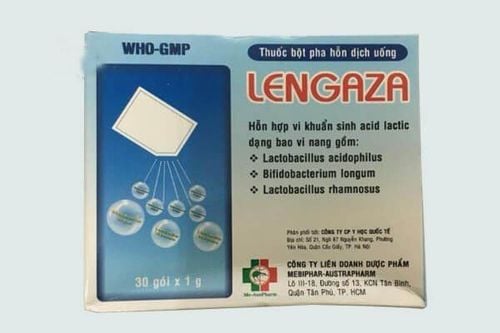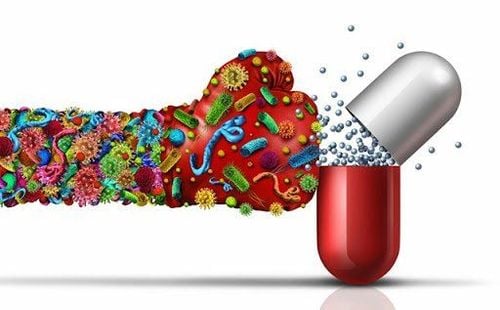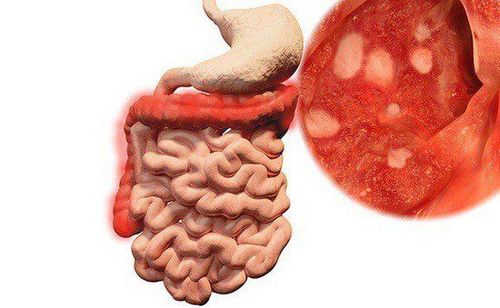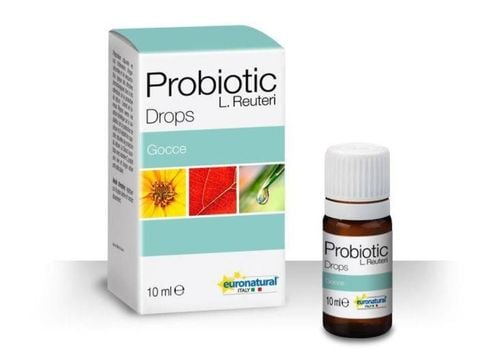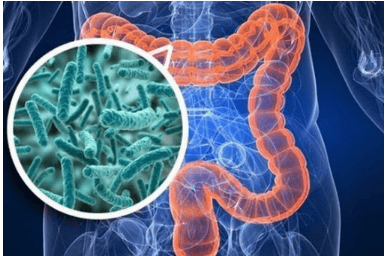This is an automatically translated article.
Posted by Master, Doctor Mai Vien Phuong - Department of Examination & Internal Medicine - Vinmec Central Park International General Hospital
Abbreviations:
Inflammatory bowel disease (IBD).
Ulcerative colitis (UC)
Crohn's disease (CD)
Fecal transplantation technique (FMT)
Disturbances in the gut microbiota disrupt mucosal homeostasis and are strongly associated with IBD in humans and colitis in mice. Therefore, preventing or correcting microbiome imbalance can be considered as a new prevention or treatment strategy for IBD.
1. Prebiotics: Nourishing probiotic preparations
Indigestible oligosaccharides, especially fructo-oligosaccharides, have long been used to promote health. A prebiotic was first defined as a “non-digestible food ingredient that beneficially affects the host by selectively stimulating the growth and/or activity of one or a limited number of microorganisms.” colonized bacteria” in 1995. Since then and especially from 2001 to 2014, the concept and meaning of prebiotics has expanded; The newest and most widely accepted definition is “substrate selectively used by host microorganisms to confer health benefits”.
A large class of prebiotics are oligosaccharides, including cereal-derived arabinoxylans and arabinoxylans, fructo-oligosaccharides (FOS), galacto-oligosaccharides (GOS), glucans, glucose/xylo-oligosaccharides, isomalto-oligosaccharides, poly-dextrose, soybean oligosaccharides, and trans-galacto-oligosaccharides.
Others include inulin and lactulose, which are classified as indigestible carbohydrates. A third and increasingly popular class of prebiotics is represented by plant polyphenols, ellagitannins and proanthocyanidins; 90%-95% of these cannot be absorbed or used in the small intestine. In the colon, however, they can undergo biotransformation by intestinal microorganisms and produce beneficial components for health. Of these, the most widely studied prebiotics, whose biological functions are best understood, are inulin, FOS, GOS, and lactulose.
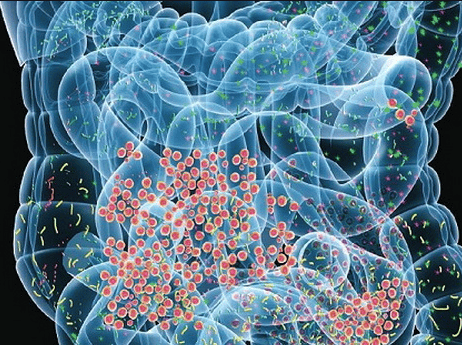
2. The role of Prebiotics in the treatment of inflammatory bowel disease
The effect of prebiotics is to stimulate certain groups of microorganisms, and to increase not only the abundance of Lactobacillus and/or Bifidobacterium but also other beneficial taxa, such as Roseburia, Eubacterium and Faecalibacterium spp. . A recent study showed that inulin induces alterations in the gut microbiota, manifested in an increase in the abundance of Bifidobacterium and Anaerotipes, and a decrease in the abundance of Bilophila.
In summary, prebiotics promote the propagation and growth of probiotics, whose metabolites confer health benefits to the host. For example, some organic acids are major metabolites produced by the metabolism of prebiotics by the host microorganism. The main organic acids produced are short-chain fatty acids (SCFAs) (eg, acetate, butyrate, and propionate), which directly lower the pH in the colon.
Interestingly, one study has shown that bacteria that separate taurine from major bile acids are enhanced after consumption of the prebiotic inulin, which is consistent with an increase in enzymatic activity of bile salt hydrolase.
3. Clinical application in the treatment of inflammatory bowel disease
For inflammatory bowel disease, probiotics and prebiotics have been widely applied to the treatment of clinical gastrointestinal disease. Mild to moderate inflammatory bowel disease or mild inflammatory bowel disease associated with C. difficile infection are the main types of inflammatory bowel disease that fit within the pro/prebiotics therapeutic range.
British Gastroenterological Society consensus guidelines published in 2019 indicate that pre/probiotics, symbiotics, fecal transplant techniques (FMT) and herbal treatments are all complementary therapies and alternative to IBD in adults.
The effect of probiotics on CD is controversial: A disease-free clinical trial demonstrated the safety and effectiveness of probiotics for the treatment of CD; however, a meta-analysis indicates that CD symptoms cannot be alleviated by probiotic treatment.
Evidence for prebiotics is relatively scarce compared with evidence for probiotics and human data are ambiguous. As a prebiotic, lactulose has shown certain benefits in UC and CD patients when administered at a daily dose of 20 g. In comparison, two other prebiotics, inulin, showed different clinical outcomes, demonstrating bioavailability in a small open-label study but no effect in a much larger study. . Furthermore, the use of probiotics and prebiotics in the treatment of IBD often in combination with conventional medications provides limited evidence.
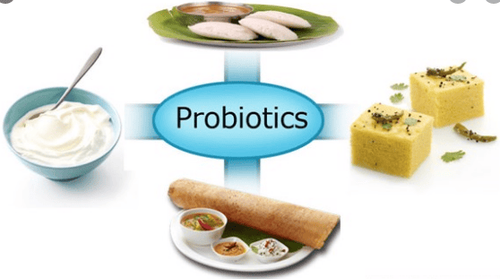
4. Prospects of probiotics in the treatment of inflammatory bowel disease
The bacterial-based therapies for IBD discussed in this review can be separated into two categories, namely: Methods that directly target the microbiome (probiotics and FMT) and those that target the microbiome (probiotics and FMT) methods with indirect regulatory mechanisms (prebiotics and herbal medicines). IBD is a complex disease involving immune, microbial, and environmental factors.
Current treatments have limitations and offer low efficacy with the rapid increase in the incidence of IBD. However, the emergence of bacteria-based therapies offers an avenue to pursue more effective and personalized treatment plans for IBD patients. Oka A and Sartor RB suggest that concomitant diagnostic tests should be performed to define an individual's microbiome to guide optimally personalized microbiological therapies. It is well known that the development of new therapies is often accompanied by the innovation of new methods and techniques.
Therefore, the development and improvement of microbial-based therapies requires multidisciplinary approaches (such as genomics, microbiology, and metabolism), to gain a comprehensive and in-depth understanding on the co-regulatory network between the microbiome, bacterial metabolites, and host immunity. .
Conclusion
Complementary therapies targeting the gut microbiota are indistinguishable, not following an individual treatment program. However, the gut microbiota composition in different patients is highly individualized. Therefore, it is necessary to screen the microbiome and conduct follow-up investigations of different IBD patients to monitor individual differences in the microbiome and design microbiome-based therapies. individualized organisms to enhance the specificity and selectivity of therapeutic strategies targeting the gut microbiota.
Currently, Vinmec International General Hospital is a prestigious address trusted by many patients in performing diagnostic techniques for digestive diseases, inflammatory bowel disease, short bowel syndrome, diseases causing chronic diarrhea , Crohn's disease, ectopic gastric mucosa in the esophagus...
Vinmec Hospital with modern facilities and equipment and a team of experienced experts, always dedicated to medical examination and treatment, Customers can rest assured with gastroscopy and esophagoscopy services at Vinmec International General Hospital.
Please dial HOTLINE for more information or register for an appointment HERE. Download MyVinmec app to make appointments faster and to manage your bookings easily.
ReferencesActis GC, Pellicano R, Fagoonee S, Ribaldone DG. History of Inflammatory Bowel Diseases. J Clin Med . 2019;8:1970. [PubMed] [DOI] Zhang YZ, Li YY. Inflammatory bowel disease: pathogenesis. World J Gastroenterol . 2014;20:91-99. [PubMed] [DOI] Plichta DR, Graham DB, Subramanian S, Xavier RJ. Therapeutic Opportunities in Inflammatory Bowel Disease: Mechanistic Dissection of Host-Microbiome Relationships. Cell . 2019;178:1041-1056. [PubMed] [DOI] Schirmer M, Garner A, Vlamakis H, Xavier RJ. Microbial genes and pathways in inflammatory bowel disease. Nat Rev Microbiol . 2019;17:497-511. [PubMed] [DOI] Yue B, Luo X, Yu Z, Mani S, Wang Z, Dou W. Inflammatory Bowel Disease: A Potential Result from the Collusion between Gut Microbiota and Mucosal Immune System. Microorganisms . 2019;7:440. [PubMed] [DOI] Bei Yue, Zhi-Lun Yu, Regulation of the intestinal microbiota: An emerging therapeutic strategy for inflammatory bowel disease, World J Gastroenterol. Aug 14, 2020; 26(30): 4378-4393, [PubMed] [DOI]





